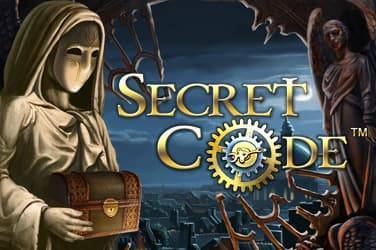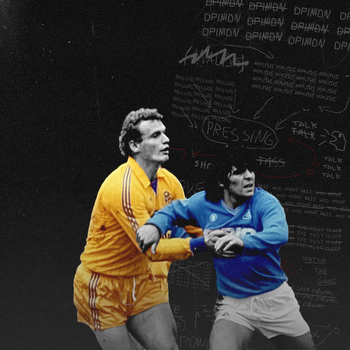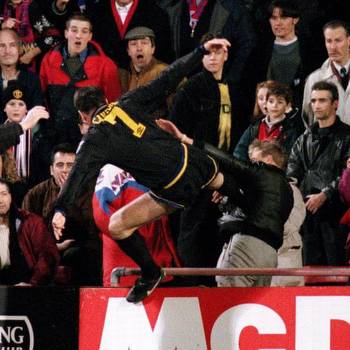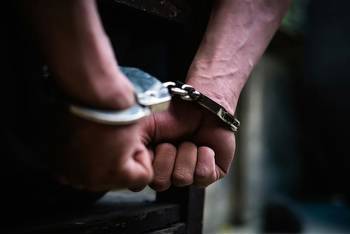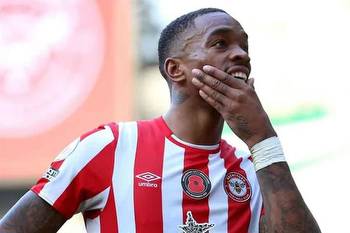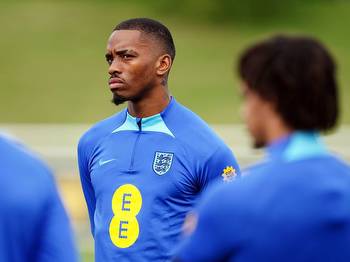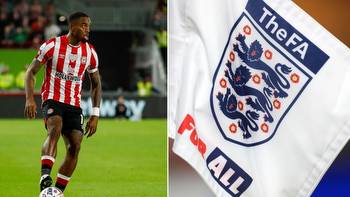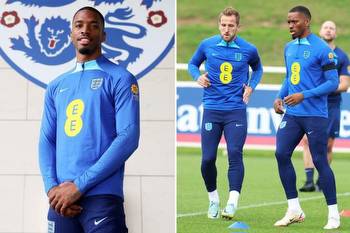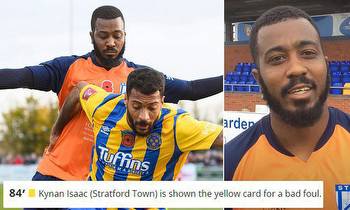Betting, bribery and corruption
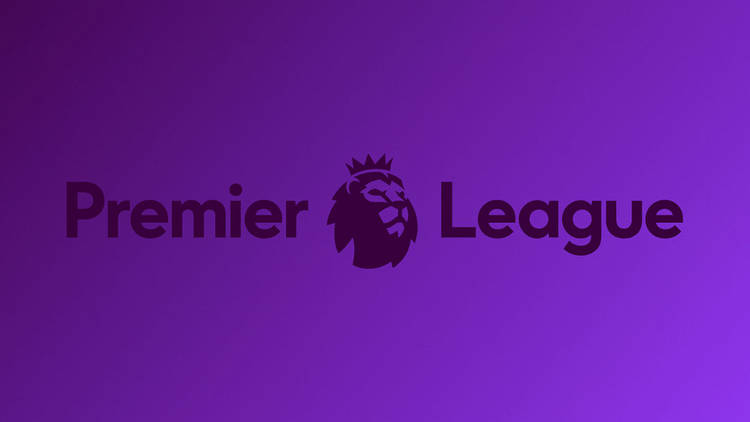
There seems to be a fair amount of speculation at the minute that Eddie Howe and the Newcastle United owners, may be targeting Ivan Toney as a summer window signing.
This is especially controversial amongst the fans for two reasons.
The first, of course, is that he was our player until Rafa finally decided that he had to sell him to Peterborough in 2018 following a series of short term loan moves to Barnsley, Shrewsbury, Scunthorpe and Wigan. Being starved of funds and needing PL experience to beat the drop, Ivan Toney was sacrificed in order to clear a space in the squad and raise a bit of cash.
However, the more relevant reason for this article is the second one – his impending “sentence” for breaking FA rule E8 which bans players from betting on games or sharing information for betting purposes. Ivan Toney been charged with a total of 262 breaches of this rule.
Although the enquiry process is supposed to be confidential, it seems to have been leaked that the FA are considering a six month ban. Clearly, this will have a massive impact, not only on his PL and fledgling England career, but also on any transfer negotiations for next season.
So why all the fuss?
He’s a young lad with money in his pocket, why can’t he have a flutter as many of us like to do?
For starters, he shouldn’t because it’s against the rules, but WHY is it?
The obvious answer is because he’s in a position to influence matches that he could be betting on and is in close contact with lots of other people able to do the same – and there are plenty of high profile examples that have set the precedent.
The first case that I remember, as a 13 year old lad, was the sensational one involving a trio of Sheffield Wednesday players in 1964. The players involved were David “Bronco” Layne, Peter Swan and Tony Kay. Layne was approached by an ex-colleague from his Swindon Town days, Jimmy Gauld, and persuaded to “throw” a game against Ipswich Town in December, 1962. He recruited fellow Wednesday players Swan and Kay to take part in the plan.
All three players bet against Wednesday in the game and Ipswich duly won 2 – 0. Layne later claimed that Ipswich won fair and square and that he didn’t know what he would have done if they hadn’t. Also, Kay was named man of the match (not “player”!) but thus didn’t help their defence, however, when the story was broken by the Sunday People in 1964. All three players were jailed for four months and received life bans from involvement in football.
Gauld went down for four years but, interestingly, made more money bey selling his story to the Sunday People (£7,420) than he did from his illegal bets (£3,275). The Proceeds of Crime Act didn’t come into effect until 2002.
Gauld had been involved in quite a number of “fixes” and in total 33 players were prosecuted but the Wednesday trio were by far the most high profile. He died in 2004.
The next case involving a high profile player that I recall was the Totonero Scandal of Italian football in 1980. Born in a Roman restaurant, Trinca’s, frequented by Lazio players, this was the brainchild of the proprietor, Alvaro Trinca, and one of his suppliers, Massimo Cruciani. The first game fixed was a friendly between Lazio and Palermo, in November 1979, which ended in a draw, as arranged.
The plan went on to involve, amongst others, Série A clubs Avellino, Bologna, Lazio, Milan and Perugia, as well as Palermo and Taranto of Série B. It wasn’t exactly lucrative, though, with Trinca reputedly losing over 100 million lire by February of the following year. Maybe that helped prompt him to file a report with the Public Prosecutor in Rome naming 27 players and 13 clubs in his scheme.
Thirteen players and the president of Milan were all arrested immediately after the final whistle of matches on 23 March and investigated but no one faced criminal charges in the end because match fixing wasn’t actually a criminal offence in Italy at that time! Bans were dished out by the Italian FA though, the most high profile being that of Paolo Rossi of, at that time, Perugia.
His three year ban saw him miss the 1980 Euros but with the ban being reduced to two years on appeal, he became eligible for the 1982 World Cup in Spain. There, despite appearing to be very much out of shape, he was picked in every game and gradually improved. He scored a hat-trick in Italy’s 3-2 win over Brazil which took them to the semi final, then both goals in the defeat of Poland in the semi-final. In the final against Germany he scored the first goal which helped Italy win the match (and the Cup) 3 – 1. He won the Golden Boot and was voted the player of the tournament.
Clearly, his two years out hadn’t made him lose his touch. He always maintained his innocence, saying he had been the victim of an injustice.
Three years before the Totonero Scandal broke, the English public and FA were shocked to find that Don Revie had resigned as England Manager (the first person to ever do so) and was taking up a role with the UAE for a then unheard of salary of £340,000 a year.
The reason Revie had jumped ship so suddenly, according to Richard Scott of the Daily Mirror (as outlined in his book “Dogs and Lamposts”) was that he was about to be exposed as a serial match fixer. The chief witness against him was Gary Sprake, the goalkeeper during Revie’s tenure at Elland Road. He had informed Stott that Revie had often bribed or attempted to bribe opposition managers to fix games. This was corroborated by, amongst others, Bob Stokoe, who claimed that Revie had attempted to bribe him.
Stott presented the FA with a 315-page dossier to back up the claims but the FA failed to act on it. Revie initiated legal action against the Daily Mirror but failed to follow it up. He coached in the UAE and other Gulf States and finally had a stint in Egypt before returning to England in 1985. He never worked in football again, despite being approached by QPR to replace Alan Mullery and died of motor neurone disease on 26 May 1989, aged 61.
The most recent case I remember probably made bigger headlines than it deserved because it involved Wayne Rooney’s father, Wayne Snr, and his uncle, Richie. They were both arrested in connection with a sending off in Scotland. On 14 December 2010 Motherwell midfielder Steve Jennings was sent off for foul and abusive language towards the match referee in a game against Hearts. He had already received a yellow card by the time of the sending off.
Police were alerted by the Association of British Bookmakers to a suspicious pattern of bets in the Liverpool area on a sending off in the game. Jennings himself was from Liverpool and was an ex Tranmere Rovers player. The two Rooneys, Jennings and six other men from Liverpool were arrested in connection with the incident but no charges were brought in the end.
No doubt there have been many other examples but these are the cases that have stuck in my memory and underline how easy it is for players to influence games. Remember David Beckham fouling Ben Thatcher to earn a yellow card in an England World Cup qualifier against Wales in 2004? It was his second yellow in the tournament which meant he missed the next game, against Azerbaijan. It was a deliberate ploy, as he later admitted:
“”It was deliberate,” Beckham was quoted as saying in Tuesday’s Daily Telegraph newspaper. “I could feel the injury … I knew straight away I had broken my ribs … I knew I will be out for a few weeks so I thought: ‘Let’s get the yellow card out of the way.'”
So, back to Ivan Toney. Is he in big trouble? Quite clearly he is and looking at a hefty ban.
Is he a criminal? There has been no suggestion that he has been involved in any attempt to influence results, he has just been a regular punter on betting sites.
Should this put us off trying to buy him – if, indeed, we are really interested?
In my opinion it shouldn’t, although it would seem sensible to put an agreement in place to come into effect after his ban has been served. As I said earlier, he’s a young lad with money in his pocket and has been silly enough to break the rules. That doesn’t make him a Jimmy Gauld, an Alvaro Trinca – or even a David Beckham! Just a rather silly boy who should have the chance to learn from his mistakes and move in.
My only reservation, in relation to his gambling habit, is if it is a problem for him. Is he a compulsive gambler who could be open to manipulation by others if his habit gets out of control? That would be genuine cause for concern.
As a footnote to this issue, there have been other examples of players with an NUFC connection falling foul of FA Rule E8. Joey Barton received a lengthy ban for betting on matches as well.
The FA fined him £30,000 and banned him for 13 months in 2017 after placing bets on over 1,200 games during a seven-year span. Barton said at the time that he was a gambling addict.
Kieran Trippier was previously barred from all soccer activities for 10 weeks and had to pay a £70,000 fine in 2020. This was in relation to betting on his transfer from Tottenham to Atletico Madrid. I don’t think anyone would be arguing that we shouldn’t have made that signing!
